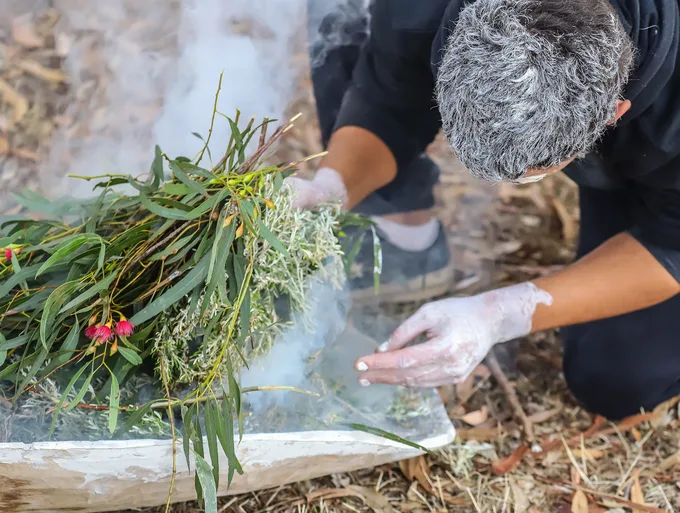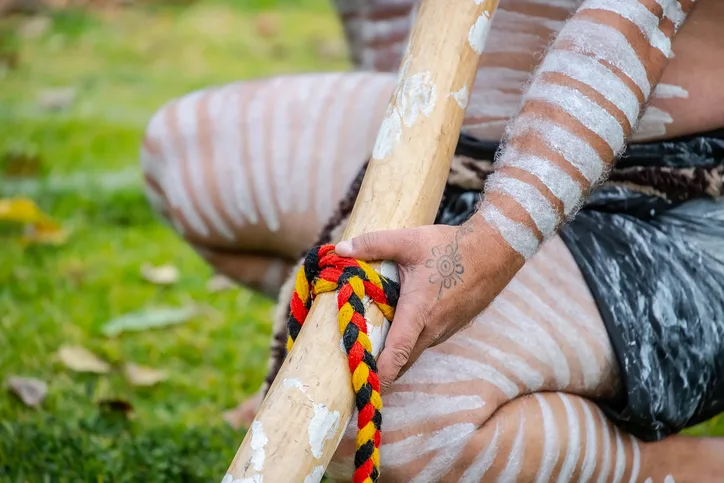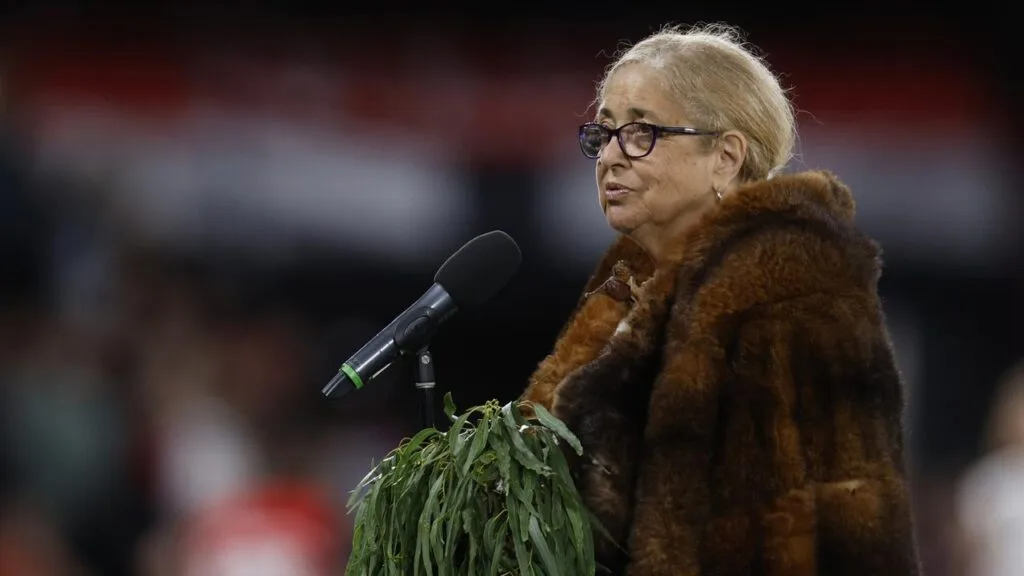Welcome to Country: The Economic Contribution of Culture

Welcome to Country protocols are integral to Australia’s cultural identity, reflecting ancient traditions and fostering respect for the world’s oldest continuous cultures. These ceremonies serve to acknowledge the traditional custodians of the land and promote reconciliation, unity, and shared understanding among diverse cultures. While they constitute a very modest part of government spending, their significance has sparked public debate, emphasising the urgent need for greater recognition of their social, cultural, and economic benefits.
In 2023-24, the Australian Government had total expenses of A$684 billion. The 2024-2025 Budget included total government expenditure totalling A$734 billion. Recent criticism of the $452,953 investment by Australian government agencies for the procurement of cultural services from cultural knowledge custodians over these 24 months, 0.003 per cent of total government expenditure, reflects a narrow perspective on the economic contribution of Aboriginal and Torres Strait Islander cultural knowledge, protocols and practices. Rather than viewing these traditions and ceremonies as unnecessary expenses, they should be celebrated for their contribution towards economic, social and cultural outcomes, in addition to being recognised as important expressions of respect and cultural identity that benefit both First Nations and non-Indigenous Australians.
Welcome to Country is far more than a symbolic gesture. Alongside artistic and cultural performances, storytelling, music and other forms of cultural expression, these protocols reflect some of the most ancient traditions in the world. Welcome to Country reflects practices wherein elders of Aboriginal nations would welcome visitors onto Country, asking for Country to ensure their safe passage if those visitors in-turn recognised the special enduring relationship between Country and traditional custodians. Today’s interpretation of these practices acknowledges the traditional custodians of the land and promote respect for the strength and resilience of the oldest continuous cultures in the world.

As Professor Marcia Langton AO, distinguished professor and internationally recognised anthropologist, has articulated,
‘Welcome to Country is a way of acknowledging the traditional owners of the land, their ancestors, and their continuing connection to country. It is a gesture of respect and recognition of the cultural significance of the land.’
These ceremonies create opportunities for shared understanding and reconciliation between all cultures, fostering unity in a country still grappling with its colonial legacy.
In recent years, after decades of unpaid cultural contributions, many traditional custodians began asking for financial recognition for the cultural services they provide. While this monetary recognition has a cost, the return on this investment is profound: a more inclusive, cohesive, and culturally aware nation and increased economic participation of First Nations people, primarily older people. This respect for First Nations cultures is not only about righting past wrongs, recognising sovereignty or just showing respect. It is about building a future of mutual understanding.
The $452,953 spent on Welcome to Country ceremonies over a two-year period also represents a contribution to the First Nations and broader Australian economy. Aboriginal and Torres Strait Islander cultural services are Australian made and owned. First Nations-led businesses, including cultural practitioners who conduct these protocols, are a growing sector of the Australian economy. According to Supply Nation, every $1 spent with a First Nations business generates $4.41 in social and economic impact. These practices have a ripple effect far beyond the immediate payment, supporting broader community and economic development.
The payment for conducting a Welcome to Country is comparable to the rate of income support in Australia. By offering these paid opportunities, First Nations people are provided dignified work and economic independence, empowering communities to sustain themselves while preserving and sharing cultural heritage. Rather than labelling these payments as excessive, we should recognise them as an evidence-based investment in First Nations economic empowerment.
As an example, First Nations tourism, which often includes cultural experiences such as Welcome to Country, generates over $5.8 billion in revenue for Australia per annum. This sector creates jobs, supports small businesses, and promotes Australia’s unique cultural heritage on the global stage, with 82% of international visitors desiring a First Nations experience. Encouraging these practices enhances Australia’s reputation as a culturally rich and diverse destination.
A/Prof Rick Macourt, Managing Director of First Nations Economics, emphasised the broader impact of these ceremonies:
Welcome to Country is not only a marker of respect and recognition of First Nations’ sovereignty, but also a powerful driver of economic and social outcomes for First Nations communities. Procurement of cultural services provides vital opportunities for Elders and cultural leaders to share their knowledge and receive deserved compensation for their lived experiences and expertise, which have greatly benefited countless generations of Aboriginal, Torres Strait Islander and non-Indigenous Australians often for little to no economic compensation. Cultural services are crucial for sustaining livelihoods and ensuring the continued vitality of our First Australians. The economic impact of First Nations cultures is invaluable, significantly enriching the fabric of our nation. We must prioritise the immense value these ceremonies bring to our society and economy rather than get caught up in debates about their costs.
While the average government department expenditure of $1,266 per cultural service has prompted some discussion regarding the financial implications of such procurement, a more controversial expense would be the A$830 million paid to French defence contractor Naval Group as part of a settlement for the cancellation of the $90 billion Attack-class submarine project under the former Morrison administration in 2022.
Expenditure on Welcome to Country constitutes a small portion of the billions allocated annually to various initiatives that have a far less direct impact on First Nations communities. Importantly, it aligns with the payments made for professional services in other sectors, such as consulting or public speaking, thereby acknowledging the invaluable expertise and cultural knowledge of First Nations Elders
Critics who suggest that funds should be redirected from cultural initiatives to “real solutions” for First Nations communities may be overlooking a fundamental point: culture could be the very foundation of meaningful progress. Cultural pride and recognition are arguably not luxuries but essential components for improving health, education, and social outcomes. Strong cultural connections may build resilience, foster mental well-being, and strengthen identity, potentially providing a solid basis for individuals and communities to thrive.

Limiting Welcome to Country to “major events” dismisses the everyday importance of acknowledging First Nations cultures and knowledge holders. Routine recognition at government meetings and public gatherings reinforces Australia’s commitment to reconciliation and ensures First Nations voices are continually represented.
Despite the clear contributions of cultural services, further research is needed to quantify their full social, cultural, and economic impacts. Collaborative efforts between government, academic institutions, and First Nations organisations could provide valuable data to guide future decisions. Such research would not only reinforce the value of these traditions but also ensure investments are targeted, equitable, and aligned with Australia’s reconciliation goals.
Welcome to Country is not a “multi-million-dollar industry,” but a foundation of cultural recognition and respect. They provide economic opportunities, foster national unity, and showcase Australia’s unique heritage globally.
To better support these practices, ongoing research is essential. By thoroughly investigating the impacts of cultural services, we can deepen our understanding, celebrate their contributions, and ensure they remain integral to Australia’s journey toward reconciliation. Investing in these traditions is not just a cultural choice—it is an investment in the nation’s social and economic future.
